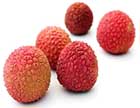A couple weeks after the first Short Cellar appeared in the print version of Precedent, my boss sent me an e-mail, which I reproduce here in full:
Just took the time to carefully read your wine column. Most impressed that you could identify “strangely pleasing combination of ripe lychee fruit and cheap rose-scented perfume” worn by grandmother. What an extraordinarily gifted nose. Have you thought of a career as a drug dog?
This is what passes for encouragement in my office. His e-mail, however, also raises an interesting question: do wine writers overdo it when describing the strange flavours swirling around in their glass?
Yes. It is undeniable that wine enthusiasts can go a little overboard. Looking through my personal wine journal, I found some real screamers (including once attributing the smell of “uncut gemstones” to a marvellous bottle of 2006 Riesling from the Ontario winery Thirty Bench). One of my favourite wine reviewers recently referred to an aroma of “clove with a refreshing spruce-needle/balsamic edge” wafting from an Australian red. I think we can all identify with the acrid smell of a spiced evergreen dipped in salad dressing.
Transforming wine into words is daunting. Mike Steinberger wrote an excellent article in Slate about the way wine writing has adapted to this challenge. Over time the general trend has been to move away from subjective and abstract descriptors like “elegant”, “rustic” or “hedonistic”. Instead, most reviewers now strive for more precise language. They parse the individual tastes in the wine and identify them with common foods or household items (like “cherries”, “vanilla” and “cheap rose-scented perfume”). The advantage of this approach is that most people immediately relate to these flavours, making wine appreciation more accessible.
This is the theory, but a lot of people are still scared off by the florid prose. Such fear is unwarranted. My own technique for describing wine is dead simple: I take time to smell the wine, I take time to drink it, and then I relax while allowing myself to free associate without any particular goal. Words, impressions, and descriptions float up to my mind. Wine’s ability to engage the imagination is what makes it special. Like a Rorschach inkblot test, it unfolds from merely a splash of colour into something complex, depending on how much time you give to it.
The results of this technique vary. Usually, my imagination produces accurate descriptions (blackberries, caramel, etc.), but sometimes less so (over dinner I meditatively blurted out to my girlfriend that a beautiful Clos Jordanne Pinot Noir reminded me of a breast). Like the Rorschach test, in vino veritas.
Matthew Sullivan is a lawyer with the Department of Justice in Toronto. He writes a weekly blog entry here on lawandstyle.ca. The Short Cellar column appears in the print edition of Precedent. Matthew can be reached at matthew@lawandstyle.beta-site.ca.

